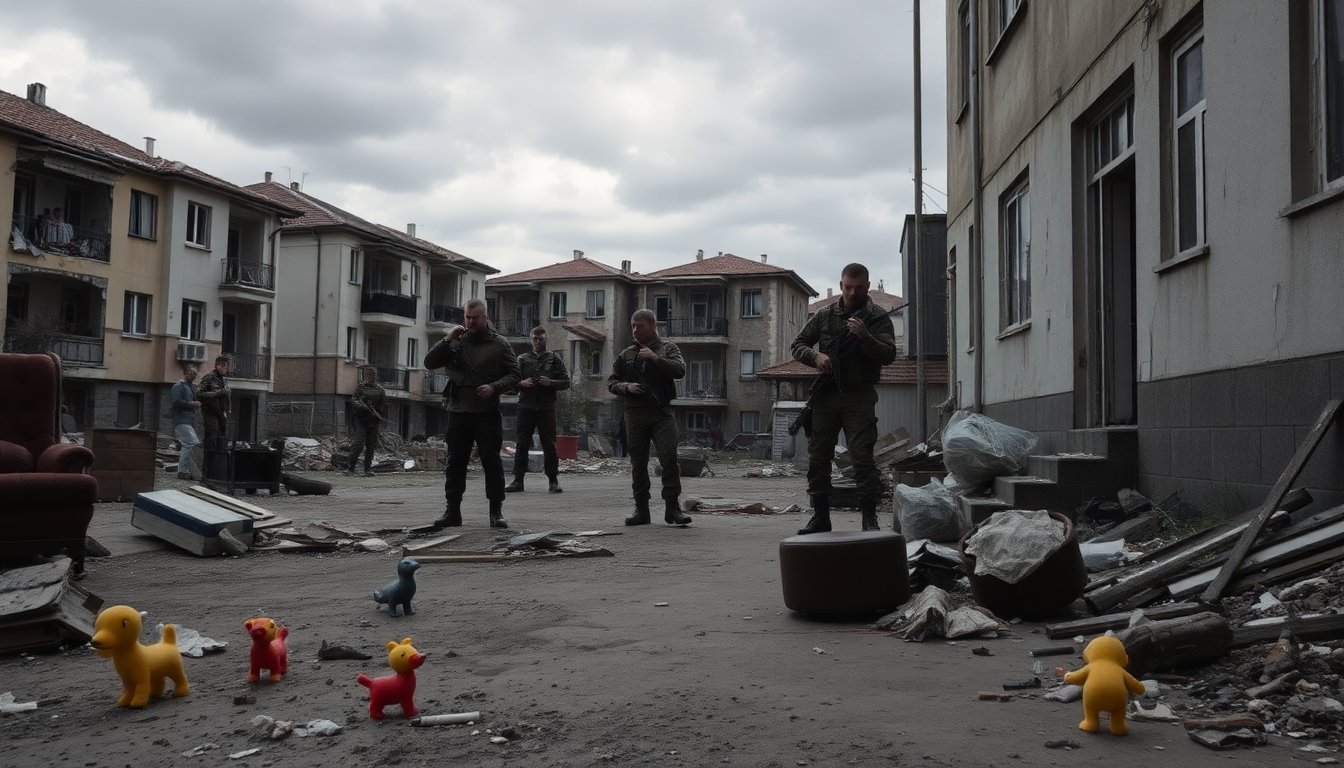Table of Contents
“`html
In February, the invasion of Ukraine by Russian forces was marked by unsettling reports of widespread looting. Captured towns saw a barrage of theft, where homes, cultural institutions, and even schools became targets for pillaging. The plundering exposed the sheer brutality of the invasion, but the narrative has taken a darker turn as evidence emerges that the Russian military’s misconduct extends to its own ranks.
Among these incidents is the chilling case of Alexey Kostrikin, a soldier apprehended after a region-wide search. Kostrikin, who had previously committed heinous acts including murder and assault, is part of a disturbing trend where the Russian military has recruited over 170,000 violent offenders from prisons to bolster its ranks in Ukraine. Data compiled by Novaya Gazeta Europe reveals that more than 1,130 of these ex-convicts returned from the front lines only to revert to a life of crime.
Escalating reports of looting
An investigation conducted by the media outlet 7×7 highlighted the alarming frequency of looting incidents reported to the Belgorod region’s governor, Vyacheslav Gladkov. Over the initial years of the conflict, the outlet found 78 messages from residents pleading for intervention against soldiers stealing from local homes. Frustratingly, many complaints went unheard, as citizens had to repeat their grievances multiple times before receiving any acknowledgment.
Residents’ accounts of looting
In the border town of Novaya Tavolzhanka, residents began documenting looting activities as early as June. They reported that Russian soldiers had taken over abandoned homes, systematically pillaging their contents. Disturbing images surfaced online, showcasing shattered televisions, stripped-out heating systems, and valuables hastily piled for removal.
Local inhabitants like Mikhail Proshutinsky expressed their desperation when they discovered soldiers occupying his evacuated residence, which he had fled due to fears of Ukrainian shelling. Despite reaching out to numerous agencies for help, Proshutinsky encountered a bureaucratic maze, ultimately receiving no compensation for the considerable damage inflicted on his property.
Fear and frustration among civilians
Many residents living near the Ukrainian border have voiced a profound fear of looting by their own soldiers, often prioritizing this anxiety over potential attacks from Ukrainian forces. Some individuals opted to remain in their homes, facing the dual threats of military aggression and resource scarcity.
As 7×7 discovered, the volume of complaints regarding looting in the Belgorod region greatly surpasses any documented investigations into these crimes. In the few instances that have reached a courtroom, charges have typically been limited to theft rather than the more serious implications of war crimes. Only in June did Governor Gladkov finally acknowledge the troubling trend, promising increased military oversight to safeguard residents’ properties.
Limited accountability for soldiers
In a neighboring region, Kursk, law enforcement has initiated around 200 investigations into looting incidents, although it remains unclear how many involve actions taken by Ukrainian troops during their temporary occupation. While some reports confirm that Russian soldiers have been arrested for theft, the overall accountability for such crimes appears to be lacking.
In April, the unsettling case of serviceman Dmitry Stenkin came to light. Stenkin attacked a family in Giry, resulting in the death of the mother and injuries to the father while briefly kidnapping their daughters. Although he was swiftly apprehended, there are widespread fears that military authorities might attempt to suppress information regarding the incident. Stenkin, a known repeat offender with a history of violent crimes, exemplifies the troubling reality of the soldiers recruited from prison.
In summary, the tales of looting and violence committed by Russian soldiers against their own citizens reveal a chaotic internal landscape within the military. With a significant number of convicts now in uniform, the ramifications of such actions pose severe implications for the ongoing conflict in Ukraine and the stability of the region.
“`


